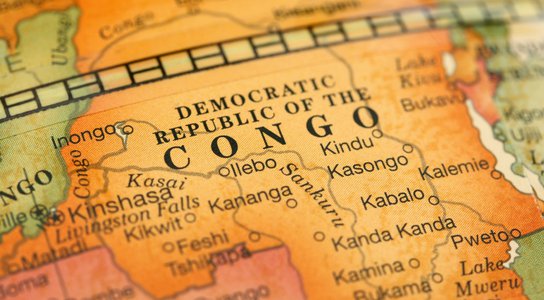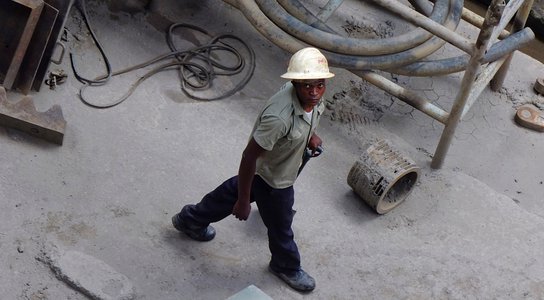In December 2017, the US Treasury issued sanctions against Israeli billionaire Dan Gertler and 19 of his companies under the 2016 Global Magnitsky Human Rights Accountability Act. Despite years of reporting on Gertler’s controversial dealings in Democratic Republic of Congo, this is the first time a government institution has directly accused him of participation in high-level corruption.
Global Witness has written about Gertler’s suspect deals in Congo since 2011. For years Gertler acted as a gatekeeper to Congo’s mineral riches and is alleged to have paid millions of dollars in bribes to Congolese officials. Holding Gertler accountable for his Congo deals is hugely important, but the real impact will depend on whether companies comply fully with the sanctions and whether US authorities are able to monitor and enforce them.
The December announcement whipped up a storm, making the headlines in the Financial Times, The Guardian, Bloomberg, The Times, the New York Times, and many others. The sanctions are unprecedented and wide-reaching. Gertler is now unable to visit the US, to access his assets held within US jurisdiction, or to engage in transactions (exchange of money, goods or services) with any US entity. Any company owned 50% or more by him or his companies is automatically sanctioned – whether or not it is on the list. US authorities can also choose to sanction a company owned less than 50% by Gertler, if they determine that he exerts control.
Any individual or company, even outside the US, that does business with Gertler risks being fined or even sanctioned by the US Office of Foreign Assets Control (OFAC). In extreme cases, they may become the subject of a criminal investigation by the US Department of Justice, not to mention the reputational risk of doing business with a sanctioned individual.
Many banks, investors and other financial institutions use OFAC’s sanctions list in their due diligence and compliance procedures. This means that, although the OFAC sanctions only immediately apply to US persons and the US financial system, in reality their reach is far wider.
The stakes are particularly high for two companies with existing relationships with Gertler: Swiss commodities giant Glencore and UK-based gold miner Randgold Resources.
Glencore had a controversial 10-year partnership with Gertler in Congo and, until at least December, paid him royalties in two projects. The company told Global Witness that it is “still considering its position in relation to its pre-existing contractual obligations to companies owned by Mr Gertler.” It wrote that it “has not made any payments to entities owned by Mr Gertler since [he] was designated” by OFAC and that it “respects and upholds all applicable sanctions.”
While Glencore considers its position, key questions remain. For example, will the contracts be suspended, terminated or annulled? Or will the royalties be left to accumulate, with interest, in an escrow account, which Gertler could pick-up if he is taken off the list? Will they be rerouted through a non-US bank in a currency other than dollars? Or perhaps they will be rerouted to an anonymous company based in a non-US secrecy jurisdiction, whose real owners are near impossible to ascertain. These are all possible scenarios and Glencore’s investors should demand clarity on exactly what is happening.
Randgold, listed on the American NASDAQ stock exchange, has an agreement to fund and conduct exploration on the Gertler-controlled Moku-Beverendi gold project, whereby it would stand to gain 51% of Moku if it finds promising reserves. While neither Moku-Beverendi nor its majority shareholder Moku Goldmines appear on the sanctions list, both automatically fall within the remit due to OFAC’s 50% ownership and control rule.
Randgold did not respond to a request for comment from Global Witness. However Randgold’s CEO Mark Bristow told Bloomberg last week that the company had “called force majeure […] we cannot entertain transacting [with Moku] in any form. We are a global company and we’re just not going to compromise that.” Randgold is “awaiting a response” from Gertler’s companies.
Gertler's representatives at London-based PR firm Powerscourt said their client had no comment on the sanctions. Gertler has consistently disputed any wrongdoing in his business dealings in Congo.
Maintaining a business relationship with Gertler would expose Glencore, Randgold and their shareholders to great financial, legal and reputational risk.
Randgold appears to be taking steps to end the relationship, but will Glencore?
Both Glencore and Randgold must fully comply with the sanctions, and explain their plans to permanently end their business relationship with Gertler to OFAC, their investors and the public.
Investors must identify and evaluate whether the companies they invest in are truly compliant, and cease any investment connected to designated persons.
The real impact of the December designations will depend on how companies and investors choose to comply, and whether US authorities are able to monitor and enforce them. The integrity of the global financial system rests on this, but it is only as strong as its weakest link.
The original version of this article was published in The Hill on 18 February 2018.


